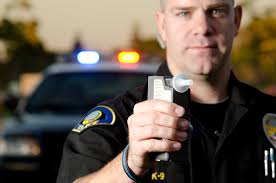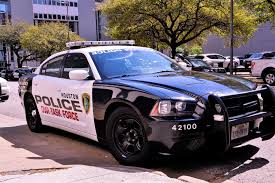What are the Benefits of a Wet Reckless?
Generally, reckless driving carries less severe penalties than a DUI charge. So, a wet reckless plea deal typically means lower fines and less potential jail time than would result from being convicted of a DUI.
A wet reckless plea can also have advantages with regard to license-related consequences. Many states allow judges to suspend a motorist’s license for reckless driving. But for DUI convictions, license suspension is typically mandatory for six months to a year. And a DUI conviction will generally add more traffic violation demerit points to person’s driving record than will a reckless driving violation.
Wet reckless convictions and DUI convictions carry different penalties, but a wet reckless conviction can count as a prior DUI. In some states, someone who has a wet reckless conviction and then is convicted of DUI will be sentenced as a repeat DUI offender.

HOW TO REDUCE DUI CHARGES WITH A PLEA BARGAIN
A plea bargain is considered before the Crown attorney presents your case during a hearing. Depending on the circumstances surrounding the case, your lawyer may approach the Crown attorney for a plea deal. The Crown attorney will agree to a plea bargain if they feel that their case is seriously flawed and it is not possible for them to proceed with the case in court. Instead of getting the case dismissed they can charge you with a lesser charge. An experienced DUI lawyer should be able to find ways on how to reduce DUI charges via a plea bargain so that it is not necessary for you to submit to the maximum penalties for your charges.

When Do You Plead Guilty or No Contest?
The first court date in a DUI case is normally the “arraignment.” At the arraignment, the judge normally asks whether the defendant plans to hire an attorney or wants a court-appointed lawyer. Defendants who have their attorney situation resolved on that first day will typically enter a plea to the charges. Otherwise, the judge might set a new court date for the defendant to come back with an attorney and enter a plea to the charges. In either scenario, the defendant’s initial plea is normally “not guilty.”
For defendants, there’s usually no benefit to pleading guilty at the first court appearance. Generally, plea deals a prosecutor offers on the first day are the same or worse than offers that come later. So, it’s typically best to initially plead not guilty and get a new court date a few weeks out or so.
This additional time will give your attorney the chance to review the prosecution’s evidence and come up with a legal strategy. Even if you ultimately decide to make a plea deal, this investment of time by your attorney often pays off anyway. With a good understanding of the facts of your case and some legal research, you attorney might be able to get you a better deal by pointing out problems with the prosecution’s case and possible defenses to the charges. Prosecutors who have doubts about their ability to prove a DUI at trial are more apt to offer plea bargains favorable to the defendant.
So, in many DUI cases, the defendant ends up entering a guilty or no contest plea at the second or third court date. However, it’s possible for a defendant to enter one of these pleas at any point prior to the jury’s verdict.

Reducing Stress by Becoming Involved in Your Defense:
Another source of stress can be the feeling of a loss of control. Many people arrested for DUI are in management or professional careers, and therefore, and are therefore accustomed to being in a position of control. Consequently, this loss of control can be a very new experience for you. This feeling usually begins when your vehicle was stopped or when you first came into contact with the police, and the officer began ordering you to take certain actions. You may have been wondering whether or not you had to do what the officer was ordering, and this is something you should discuss with your attorney.
The best way to overcome this feeling of being out-of-control is to ask your attorney how you can help with your defense. This may be as simple as becoming involved in therapy and/or treatment, but might also includes obtaining medical records and driving records. Your attorney might also ask you to travel to the “scene” and take digital photographs that can later be incorporated into a power point presentation at trial.
One thing to keep in mind however, is that your attorney is working hard to obtain the best possible result. This can also be difficult, because you may not be accustomed to letting another person control something so important to you, and the only way to reach this level of trust is by carefully selecting your attorney.
If and when you and your attorney decide to pursue an actual trial, you might be able to take a more active role in trial preparation. To assist your attorney in preparing for trial, it is essential that you provide the appropriate contact information, so that you can be reached at a moment’s notice. It may also be important for you to be in contact with your witnesses as well as any expert witnesses. Sometimes, we will ask you to meet with the expert witnesses to help gather information.
You should, of course, always know what direction your case is going. For example, if motions are being scheduled or if trial is being scheduled, it is important for you to discuss these things with your attorney. Again, understanding what to expect will go a long way toward relieving your stress. However, don’t try to be involved in every decision that is made, as this is often counterproductive. Finally, you must have faith and confidence in your lawyer and just let him or her do what you have paid them to do. They are the legal experts and are working hard to obtain the best possible result for you.
Ways to Beat a DUI
No Probable Cause for the Stop
The officer must have probable cause to stop, detain, or arrest you for DUI. If there was no probable cause the evidence, and the case may get dismissed.
The police must have a reasonable suspicion or reasonable belief that you are engaged in a criminal activity before they can stop your car, conduct a DUI investigation, or arrest you for a DUI in San Diego. This reasonable belief is a standard known as probable cause. If an officer does not have the required probable cause before engaging in any one of these stages, any evidence that is obtained as a result of that illegal procedure will be suppressed. When evidence is suppressed, it means that the prosecution cannot use it against you. This means that evidence obtained without probable cause usually results in reduced or dismissed San Diego DUI charges.
For example, if you were driving at 2:05 a.m. and committed no traffic violation but were pulled over for simply being on the road after “bar time” any evidence obtained after the stop could not be used against you. This includes anything you say to the officer, the blood/ breath results, and any field sobriety tests.
Faulty and Unreliable Breath Tests
The DUI breath tests used in San Diego have many flaws. These tests are subject to some of the following problems:
A. Improper use by the police
B. Physiological Conditions (gastroesophageal reflux disease aka GERD)
C. Instrument Malfunction
D. Failure to observe the defendant prior to the test.
DUI breath testing is the most common way to measure a defendant’s BAC but it is not always an accurate because of the fact that a DUI breath test doesn’t directly measure the amount of alcohol in your blood. It measures the amount of alcohol present in your breath and converts that amount to determine the amount of alcohol in your blood. As a result, DUI breath testing is susceptible to a variety of outside influences that can generate an erroneously high BAC reading.
Mouth Alcohol
DUI breath testing instruments are designed to capture a sample of breath from your deep lung tissue; this is known as “alveolar air.” Residual alcohol can linger in the mouth for some of the following reasons:
A. Dental work trapped small amounts of
alcohol-soaked food in your teeth,
B. You burped or regurgitated, or
C. You suffer from acid reflux, heartburn, or GERD.
The breath test instrument captures “mouth alcohol” rather than simply “aveolar air.” As a result, mouth alcohol can trigger a false BAC reading on a San Diego DUI breath test.
Medical Conditions
Medical conditions such as Gastroesophageal Reflux Disease (more commonly referred to as “GERD”), acid reflux, or heartburn can contaminate DUI breath test results. GERD, acid reflux, and heartburn are all medical conditions that create possible mouth alcohol situations. This is because these conditions produce a flow of acid that travels from the stomach into the mouth. When this occurs during a DUI breath test or just prior, the alcohol that travels from your stomach to your mouth disguises the deep lung air that the breath testing instrument is intended to measure. As a result, GERD, acid reflux, and/or heartburn can cause a falsely high BAC on a California DUI breath test.
Police Misconduct
Even if you were driving under the influence, police misconduct may knock out your DUI charges.
If you can demonstrate police misconduct, then your DUI charges may have to be dismissed. This is true even if you were actually guilty of DUI. This is because proper police procedures must be followed. For example,
A. DUI police reports must be accurate,
B. Title 17 procedures must be complied with, and
C. Courtroom testimony must be truthful.
If these, or other, conditions are purposely manipulated or ignored, evidence that was illegally obtained or fabricated will be thrown out. Depending on how severely this impacts the prosecutor’s case, he may choose to reduce or dismiss your charges.